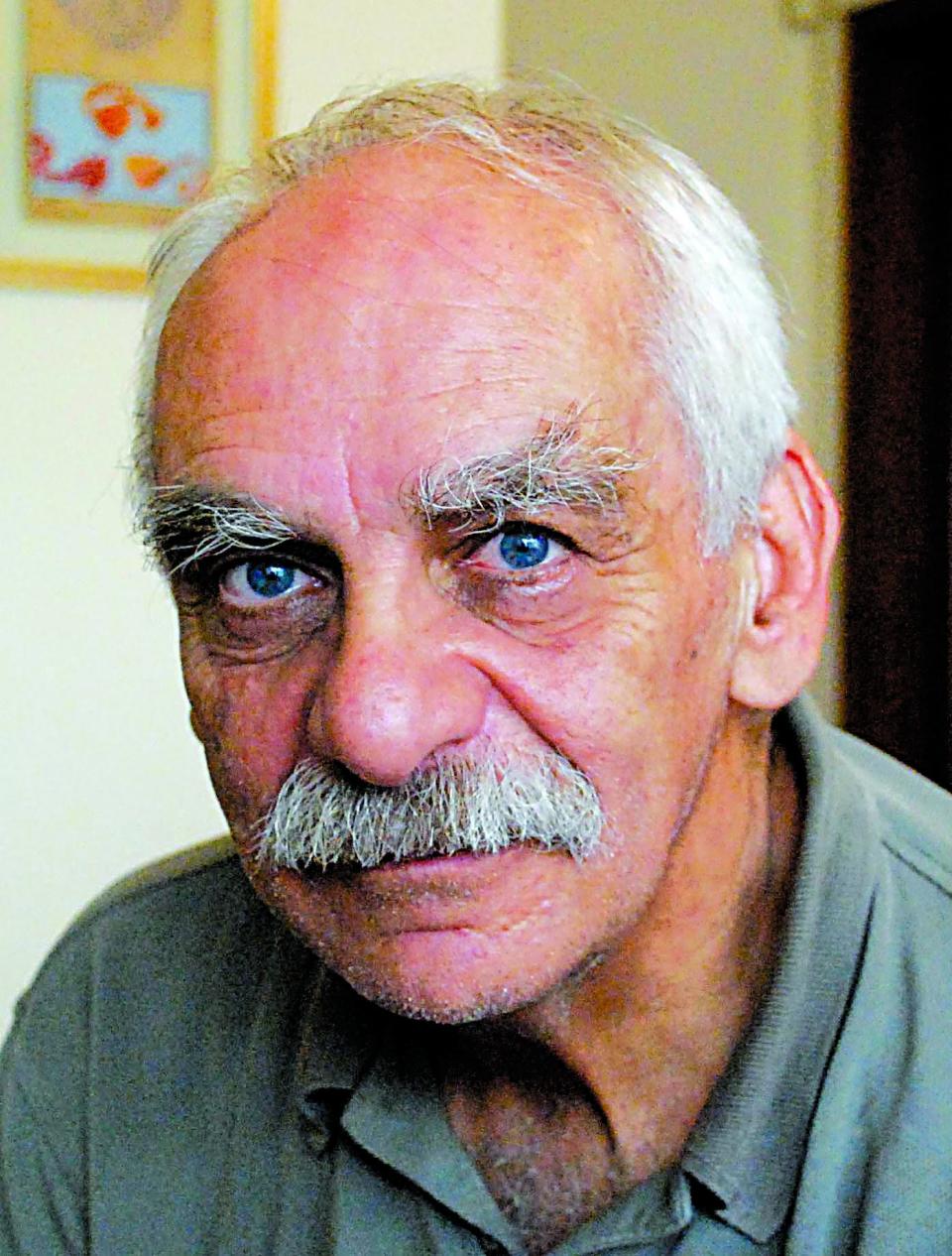Azzi: 'Working for the salvation of the world'
I remember being raised on the myth that 400 years ago, two tribes, the Indigenous peoples who had inhabited these lands for over 12,000 years and the Europeans colonists who came here to colonize and occupy those very same lands, came together in 1621 to celebrate what's generally called the First Thanksgiving with feasts, games, and military exercises.
Missing from that grade school myth, as in so many of America's birthing stories, are descriptions of the massacres, betrayal, disease and divisive Indian tribal politics that shaped a white-supremacist narrative of a peaceful alliance between Pilgrims and Wampanoags that has perniciously persisted for centuries.
I think I was in the third grade when I drew the part of Indian in a school pageant. It called for me to buddy up with a Pilgrim: I got a feather, he got a black hat.

Each time I write an offering for the public square I believe my challenge is, as Joseph Conrad wrote, " … by the power of the written word, to make you hear, to make you feel - it is, before all, to make you see … "
To hear the words between my words … to see beyond your horizon … to feel, as lovers have felt over time, that love does not begin and end the way we always hope it will.
It's a struggle to invite you to see; a clash between unrequited interests that sometimes end in fulfillment, sometimes in disappointment, sometimes transformational.
To tell you that you don't know what you don't know, to challenge the reality of things you believe to be true, of promises unfulfilled, of dreams unrealized.
To delegitimize myths is to reveal truth and beauty.
I am beset, especially during these post-midterm days of celebration and Thanksgiving, by calls from seemingly well-intentioned mostly Christian, white politicians, pundits and pastors - and by non-whites seduced by their proximity to privilege and power - for Americans to come together to find "Common Ground."
Ground common to whom?
Common ground denied to so many Americans because this nation believed, for over 400 years, not only that the white race is superior but was morally obliged to civilize and Christianize non-white peoples through colonialism.
Ground denied to too many Americans for too many years because they were denied ground upon which to learn, play, worship, and acquire wealth; often denied by the people like those who want me to sit down with them today.
Common ground, I've come to believe, is that place occupied by white people of privilege whose lives do not notably change from one political administration to another — from one church bombing or synagogue shooting to another — who advocate for societal change, social justice and equity without having anything at risk.
The idea of gathering on common ground is a seductive one, almost Seussian — "A person's a person, no matter how small" — is a kind of white magical thinking, a belief that simply imagining a new world in which all of humanity is equal will make it happen.
I'm sure they mean well — I just don't believe they have my wellness in mind, nor the wellness of many people whom I know and love.
There is no common ground with people who threaten citizens unlike themselves. I'm not interested in finding common ground with people who want to disenfranchise, marginalize, delegitimize, and even maim and kill people unlike themselves.
I want them disenfranchised.
There is no common ground with inciters or perpetrators of violence, whether at the US Capitol or Club Q, whether at The Pulse nightclub or Tree of Life synagogue, whether at Tops Supermarkets in Buffalo or at Mother Emanuel in Charleston.
I want them delegitimized.
If we permit such depredations — if we legitimize their racist and supremacist arguments by sitting down with them — if we allow haters to have hope — we will become as speechless as Lot’s wife who, looking backward, changed into a pillar of salt.
"Before all, to make you see … "
In spite of all that has befallen us, all the threats, turmoil and tumult, Thanksgiving remains my favorite holiday, both for memories it evokes and its relative lack of commercialization. This week, as in other years, I remembered the words of the 11th century CE Sufi mystic poet Abdullah Ansari, for beauty, renewal and love:
“O Lord, give me a heart / I can pour out in thanksgiving.Give me life / So I can spend it / Working for the salvation of the world.”
Robert Azzi, a photographer and writer who lives in Exeter, can be reached at theother.azzi@gmail.com. His columns are archived at theotherazzi.wordpress.com.
This article originally appeared on Portsmouth Herald: Azzi: 'Working for the salvation of the world'

